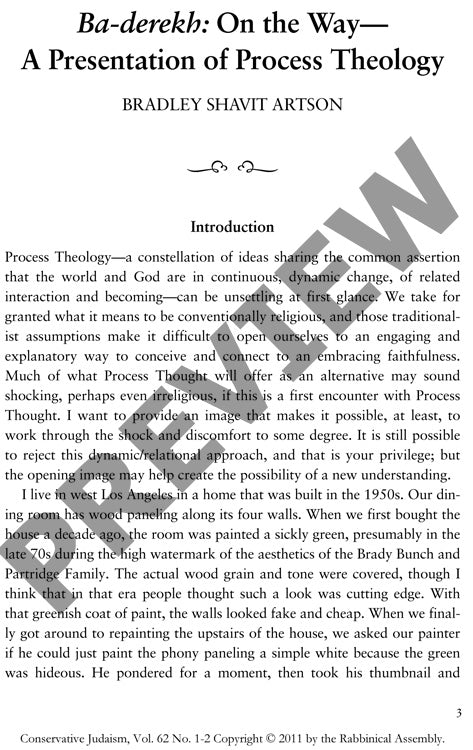Ba Derekh on the Way a Presentation of P
Couldn't load pickup availability
Process Theology offers a radical reimagining of Jewish theological frameworks, one that aligns more closely with biblical and rabbinic understandings than classical Western theological models. By comparing Greek philosophical overlays on religion to paint obscuring authentic wood grain, this analysis demonstrates how Process Thinking reveals Judaism's inherently relational theological core. Through systematic critique of classical theological concepts—omnipotence, omniscience, and omnibenevolence—the investigation exposes philosophical contradictions and incompatibilities with biblical and rabbinic portrayals of God. Drawing extensively from Jewish texts including Torah, Talmud, Midrash, and Kabbalah, the research presents Process Theology's core insights: reality as fundamentally relational and dynamic, God as dipolar (both eternal and temporal), divine power as persuasive rather than coercive, and creation as an ongoing collaborative process between God and the cosmos. The analysis addresses theodicy by categorizing evil and suffering into three Maimonidean categories: natural consequences of material existence, results of human freedom and poor choices, and self-inflicted harm. Key findings demonstrate Process Theology's compatibility with both contemporary scientific cosmology and traditional Jewish thought, offering a coherent framework that preserves human freedom while maintaining meaningful divine-world relationship. Process Theology ultimately provides a biblically resonant alternative to classical theism that integrates scientific knowledge with authentic Jewish theological insights, presenting God as a vulnerable, relating partner in the ongoing creative process rather than an unchanging, coercive deity.

More Information
-
Physical Description
-
Publication Information
Published 2010-2011
ISBN
-
Publication Credits
Bradley Artson

